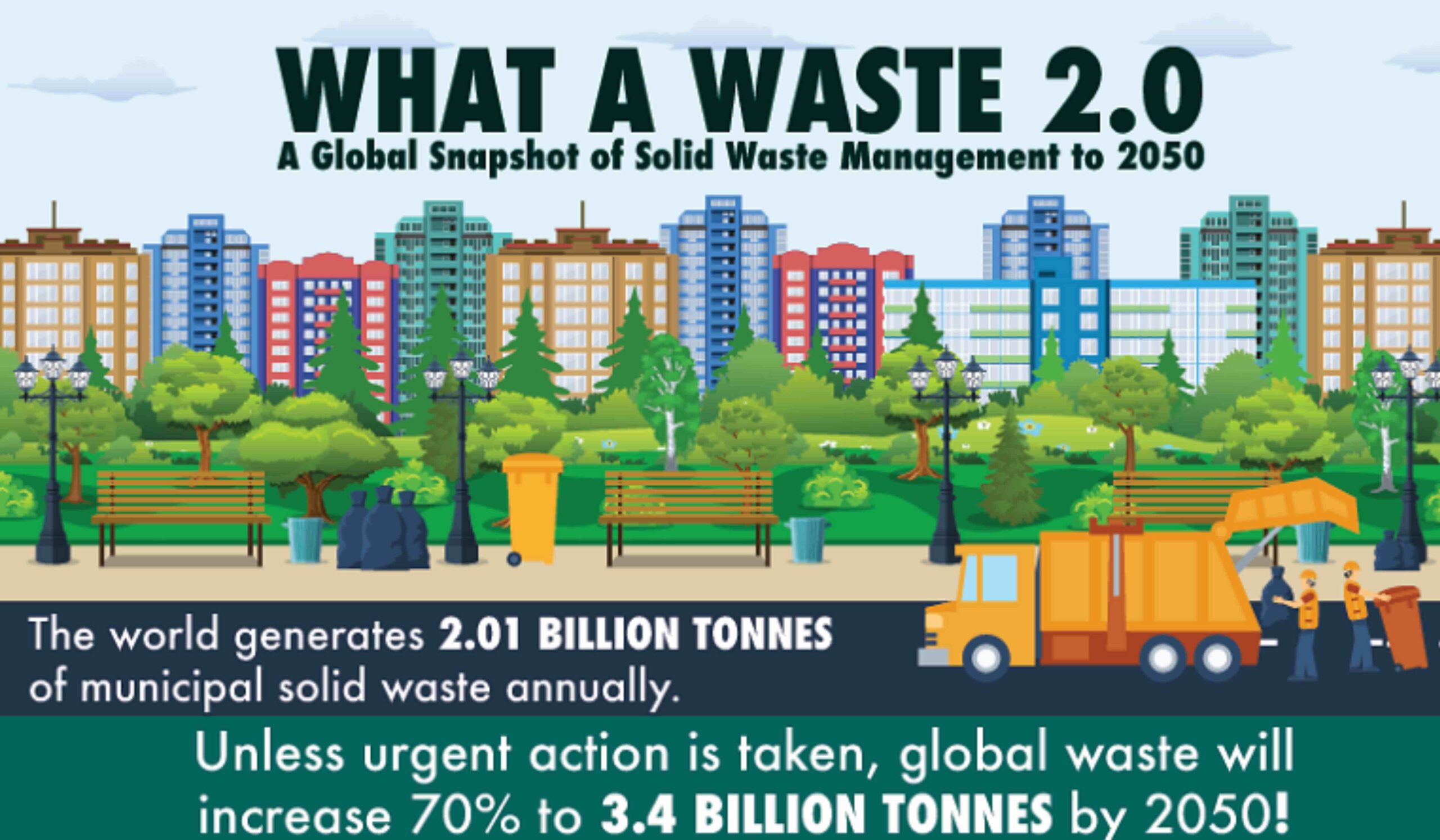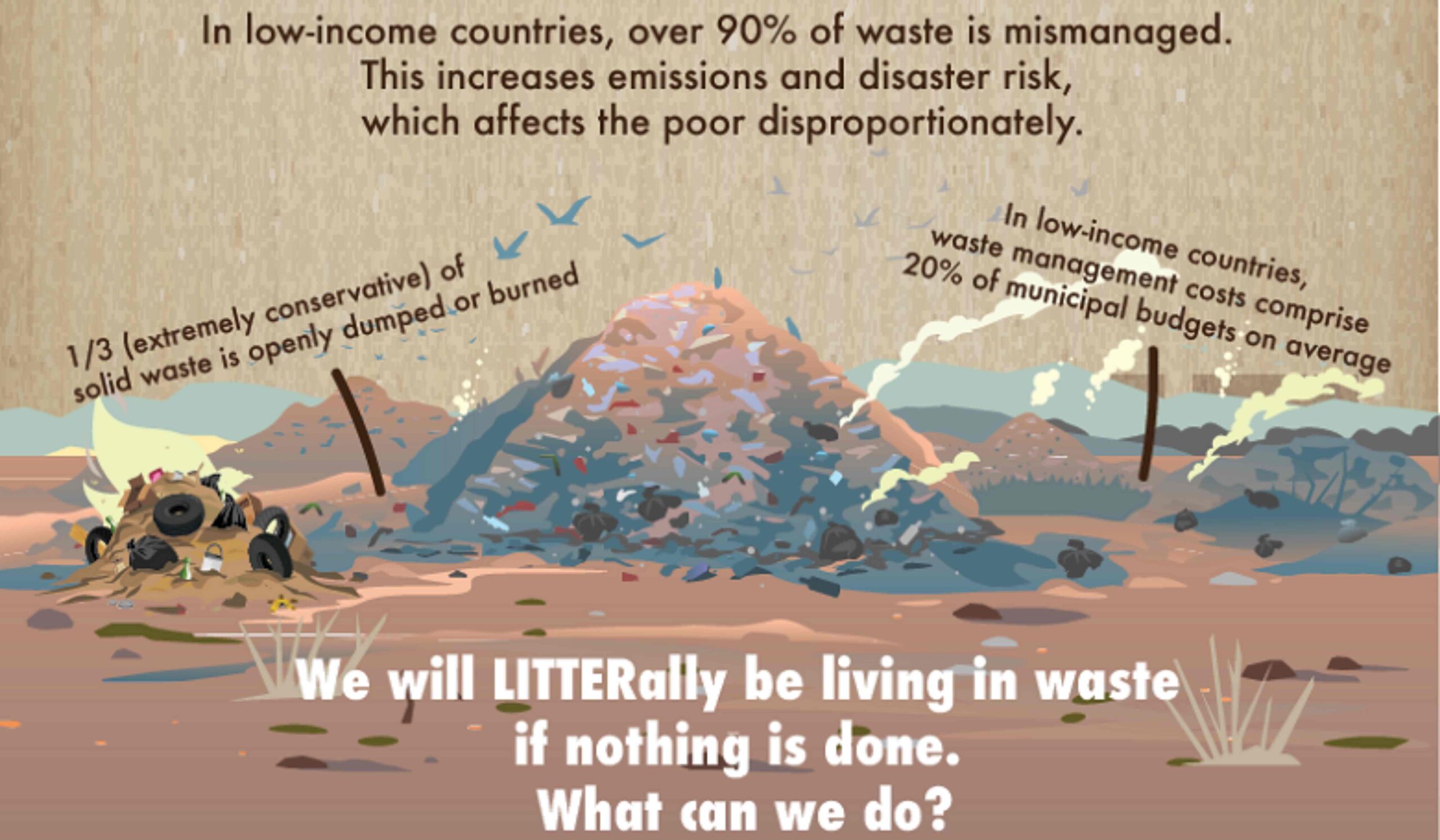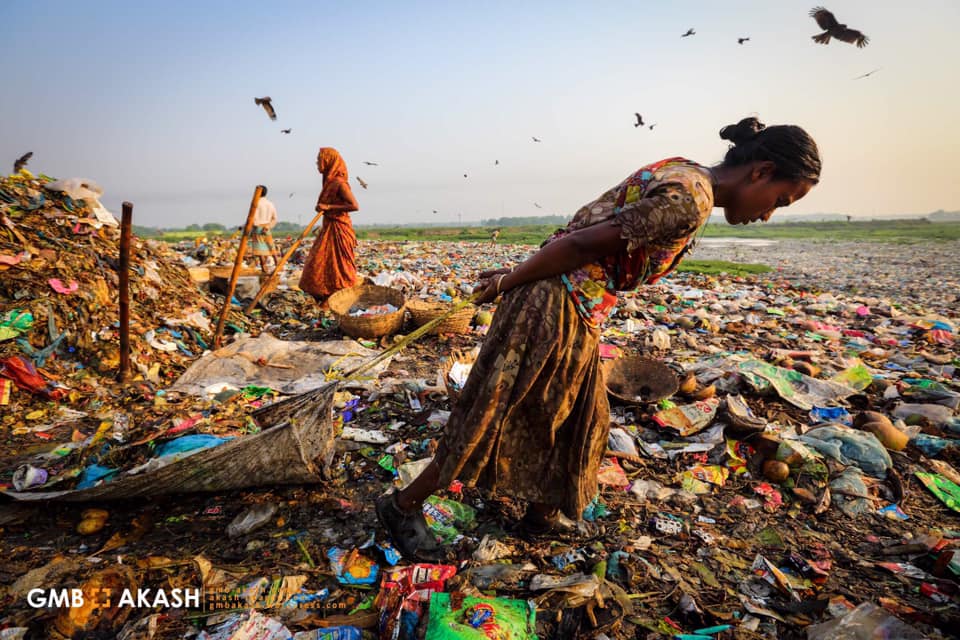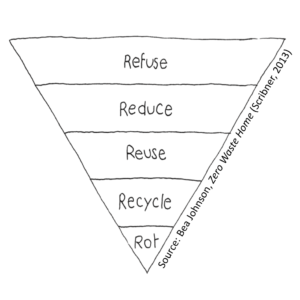Published 27 May 2022 ● Last Updated on 5 June 2022
Picture this: you are in a car on a road trip, at a distance you see birds flocking around a tall mound. You keep wondering what that place could be and then, as you drive up close to the mound you realise that… it is a heap of rubbish that has grown to the size of a hillock! This is a true story from my travels in Ahmedabad in Gujarat, India.

Waste management is the need of the hour
Driven by rapid urbanisation, population explosion and an ever-growing throwaway culture, waste generation is estimated to grow from 2.24 billion tons in 2020 to 3.88 billion tons in 2050. We are literally going to find ourselves in cities covered with garbage heaps, emitting toxic gases, and destroying the very soil we thrive on, if the world continues down a business-as-usual path and countries choose to take no action to adopt sustainable practices and generate less garbage.

According to the World Bank’s What a Waste 2.0 report, the world generates 2.01 billion tonnes of municipal solid waste annually , with at least 33% of that not managed in an environmentally safe manner.
High-income countries generate more than one-third of the world’s waste but provide nearly universal waste collection, and recover one-third of it through recycling and composting. In contrast low-income countries collect less than half of the waste in cities, and just one-fourth in rural areas; merely 4% is recycled. Overall, 13.5% of global waste is recycled and 5.5% is composted.
With over 90% of trash in low-income countries being either dumped in the open or burned, it creates pollution and adds to long-term environmental damage. There are also many cases of documented landslides of waste dumps that have buried homes and people under piles of waste. Bearing the brunt are the poorest – those living near waste dumps, or those scouring for recyclables in landfills to earn a living.

Plastics are especially problematic. If not collected and managed properly, they can contaminate and affect waterways and ecosystems for hundreds, if not thousands, of years. Unfortunately that’s exactly the scenario being played out – around 11 million tonnes of plastic waste is estimated to enter the oceans every year, 80% of it making its way from land-based sources! Plastic waste is choking our oceans and making up 90% of marine debris.
Poor waste management – ranging from sub-optimal collection systems to ineffective disposal – causes air pollution, water pollution and soil contamination. Open and unsanitary landfills can contaminate drinking water, contributing to infection and diseases. The dispersal of debris damages ecosystems and dangerous substances from electronic waste or industrial garbage put a strain on the health of people as well as the environment.
Greenhouse gases from waste are a key contributor to climate change. In 2016, 5% of global emissions were generated from solid waste management, excluding transportation.
Leading the pack
On land, food, an essential for life and a luxury for many in the world, sadly leads the pack amongst solid waste pollutants. Paper, plastic, e-waste, textile waste follow.
Ocean Conservancy spearheads an annual International Coastal Cleanup Day and also logs each trash item in water into a common database. A significant takeaway from their 2020 report is that all of the items in the top 10 were made of plastic (download the pdf here). Read more on marine debris polluting the oceans here.
5 ways you can help

Refuse not just single use plastics and non recyclable stuff but also refuse excess in any form, from clothes to food buy only what you absolutely need.
Reduce the use of everything that’s harmful to our environment , for example reduce the usage of your car by using public transport or carpooling reduce your dependence on foreign produce, buy local and seasonal instead.
Reuse anything and everything that can be used again. Just by not reordering but reusing we are taking a big burden off the environment.
Recycle nothing really is useless until it truly cannot be used for some purpose or the other. Recycle every bit so what you throw away reduces significantly.
Rot compost all of your wet waste, that’s pure brown gold waiting to be given a chance.
Singapore’s Story
As an island nation in a tropical country with just around 700 square kilometers of land, Singapore cannot ignore the diseases and pollution that poor waste management can cause. It has been an early adopter of strict waste disposal, spearheaded by the National Environment Agency.
At present, all non-recyclable solid waste – about 8,200 tons of garbage per day – is sent to the waste-to-energy plants where, after incineration in a controlled environment under WHO standards, waste volume is reduced by 90%. The resultant ash is what will eventually reach the landfill. The process generates enough power to meet 2-3% of Singapore’s power needs!
There is only one landfill – Pulau Semakau– structured as a bund about 8 kms south of Singapore Island. Ferries carry the ash (from the incinerator) as well non-incinerator materials for burial here.
Sounds like a fairy tale? Here’s the catch: The tide of trash – clocking approximately 7.5 min tonnes annually in the past few years – is eating up into the landfill faster than expected. It will run out of space by 2035!
In conclusion
In an era of rapid urbanisation and population growth, solid waste management is critical for sustainable, healthy, and inclusive cities and communities. If no action is taken, the world will be on a dangerous path to more waste and overwhelming pollution. Lives, livelihoods, and the environment would pay an even higher price than they are today. Many solutions already exist to reverse that trend. What is needed is urgent action at all levels of society. The time for action is now!
Related Articles
Food waste | The Singapore story and what you can do to help reduce it!





0 Comments